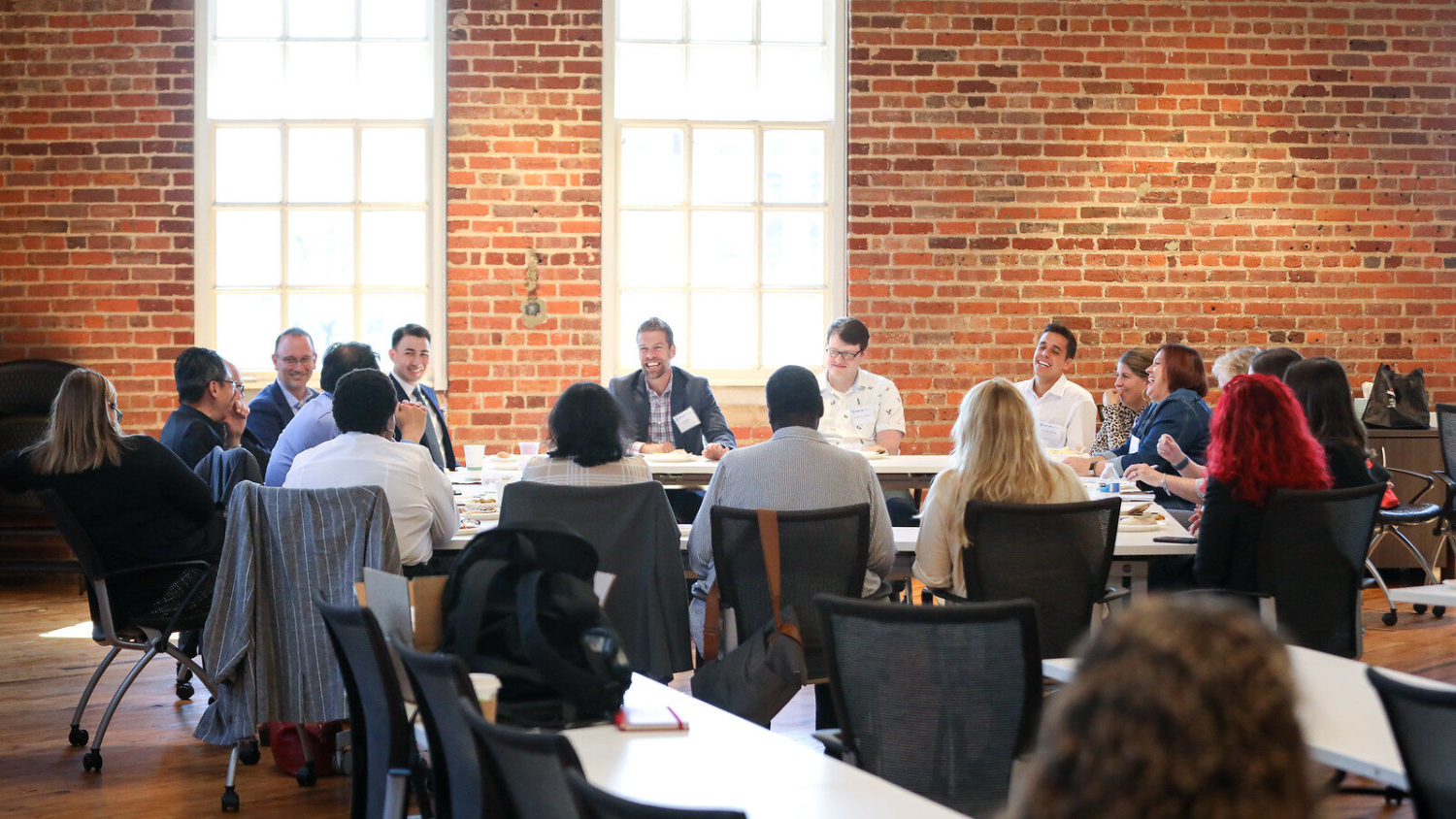When Jeff Kelly was a philosophy major at NC State, he knew he would parlay his education into a law career with access to the courtroom – and the boardroom.
Today, Kelly, whose studies focused on the philosophy of law, is an emerging technology and complex litigation attorney at Nelson Mullins Riley & Scarborough in Raleigh. He also is a fellow of Duke University School of Law’s Center on Law and Technology (DCLT).
In both roles, Kelly works at the intersection of law and technology where he applies logic and legal analysis to counsel clients.
At his firm, Kelly assists technology companies with corporate, securities and regulatory compliance issues. That includes counseling clients on transactions and partnerships, guiding them on the regulatory risks of novel services and business models in highly regulated industries, assisting with technical issues in ongoing lawsuits, and responding to inquiries from regulators.

At DCLT, he leverages technology and design to serve the unmet legal needs of underrepresented populations and ensures emerging technologies benefit the public.
For Kelly, the work is interesting and varied. To keep pace with the ever-changing world of new and emerging technologies requires creative problem solving, effective communication, collaboration and conflict resolution — skills Kelly says he honed while majoring in philosophy.
His first encounter with “formal” philosophy, however, dates to his senior year in high school, when he took ethics and contemporary philosophy courses.
“I’ve been hooked ever since,” admits Kelly. His favorite philosopher is Georg Wilhelm Friedrich Hegel, for his influences on modern philosophy.
Kelly’s passion for the subject helped shape his career, evoking one of Hegel’s famous quotations: “Nothing great in the world has ever been accomplished without passion.”
“I grew up during the dot-com bubble and graduated high school while social media and many Big Tech companies were (thankfully!) still in their infancy, so it was apparent I needed to equip myself for a changing world,” Kelly says. “I also knew that honing my critical thinking skills and a disciplined study of ethics would serve me well.”
Against this backdrop, Kelly sees philosophy as an equal partner with law.
“If you can distill and engage in a reasoned debate on issues ranging from contemporary ethics to the paradoxes of time travel, you can probably evaluate proposed laws and help your clients understand their implications, too,” says Kelly.
Philosophy teaches us to grapple with ambiguous scenarios and make reasoned choices with limited information; he continues and adds, “This is particularly important when you are navigating evolving regulatory environments.”
“If you can distill and engage in a reasoned debate on issues ranging from contemporary ethics to the paradoxes of time travel, you can probably evaluate proposed laws and help your clients understand their implications, too.”
Despite its challenges, Kelly finds his work — from helping entrepreneurs bring innovative and impactful products to market to witnessing the creative process of industry experts — rewarding. Particularly gratifying, he adds, is working with businesses that operate for the public good or reach underserved communities.
Kelly says he values his time on NC State’s campus where “attending classes and seminars organized by other departments helped prepare me for many of the interdisciplinary projects I’ve worked on, and I saw how being a translator between industries would be incredibly valuable in the modern business environment.”
Even in his post-graduation years, Kelly says he continues to benefit from State’s interdisciplinary programs, including its recent business analytics initiative roundtable.
On a personal note, he also met his wife of 12 years at State. Between them, the couple earned three degrees from the university, Kelly notes.
Kelly’s advice to someone entering the field is simple: focus on your area of study, but be sure to learn from your peers in other industries.
“I doubt I would be as immersed in tech if I was not curious about what my roommates and friends studying engineering and computer science were learning,” he says.
This post was originally published in College of Humanities and Social Sciences.
- Categories:



